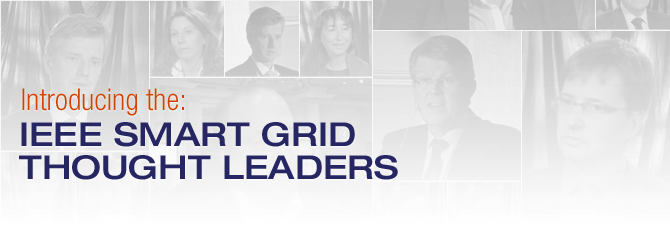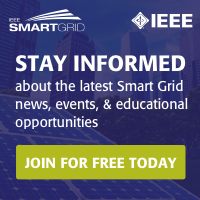Ralf Christian

As part of an ongoing video interview series with Smart Grid experts around the world, we present a conversation with Smart Grid expert, Ralf Christian, CEO of Siemens Energy Sector's Power Distribution. Ralf discusses "Consumer Consumption Renewables" and "Are Smart Grids Real" at the IEEE Smart Grid World Forum in Brussels, Belgium.
VIDEO TRANSCRIPTION
The last level that we're facing in means of smart grids is that we have to make big steps forward to integrate the consumption side into our future, sustainable energy system. Today's management systems work, basically, only one way. If there's more consumption, we need to generate more exactly at the same point of time. So we have over capacity with nuclear, fossil power plants, and we basically adjust on the generation side.
This won't work any more if we large amounts of wind or solar intermittent energy. So we have to start managing the consumption side at the same time. This is basically the third element here, integrating all consumers, large industrial infrastructure, as well as residential consumers with green and available energy to make, basically, a major step forward on C02 footprint.
[music]
So, was our smart grid [inaudible 1:09]? Absolutely, smart grids are going to be the backbone of what we need to achieve here as a society, which is a sustainable energy system that will provide safe, secure, efficient, and economically efficient energy to the world population. It will bridge all sorts of generation mix with the consumption side with a much more intelligent, much more flexible, logistics system, I would call it. In the end, the grid is nothing else but a very smart and large scale logistics system to bring electricity from generation to consumption.
So, smart grid is the key enabler to achieve this. It is the key enabler to achieve the EU policy targets on environment. It makes possible and it will make possible the further increase, the large scale integration of renewables. Again, 2020 is only a short-term target. If we look beyond 2020 to 2030, 2050, we basically talk about the majority in-feed from renewables not only 20% or 30%.
It will ease complexity of those significantly more complex power systems, and it will keep the security of the [inaudible 2:25]. This is very important because we rely so much on electricity today that we cannot allow the system to become less secure.
It will provide a significant step forward to improve energy efficiency across all applications, and finally it will be a very efficient way to bridge and extend capacities by the usage of more intelligence. Instead of building more copper, it's basically using the 50 years of investment that we have in our power grids to a better extent and, basically, remove constraints in our prints.
[music]


